FORCE's eXamining the Relevance of Articles for You (XRAY) program looks behind the headlines of cancer news to help you understand what the research means for you.
XRAY is a reliable source of hereditary cancer research-related news and information.
Learn more about the XRAY program
Relevant for: previvors, In portal: Breast Cancer
Relevance: Medium-High


Research Timeline: Post Approval


Study : FDA updates report on risk of lymphoma from breast implants
Most relevant for: Women who currently have textured implants or expanders or who have had them in the past
Note: On 07/25/19, the FDA announced a recall of Allergan BIOCELL textured implants and expanders, due to their association with BIA-ALCL. On October 27, 2021 the FDA announced stronger guidance on breast implant safety.
In March 2017, the Food and Drug Administration reported that patients with breast implants may be at increased risk for a rare type of lymphoma. This was covered in a previous XRAYS review. The FDA has continued to collect data since the first reported association in 2011. Recently, the agency released an update on the number of reported cases of breast implant-associated lymphoma and lifetime risk estimates for women with textured breast implants. (04/02/18)
Read More
Relevance: Medium-High


Strength of Science: Medium


Study : Take your time, follow your heart: strategies for communication about family planning
Relevance: Medium-High


Strength of Science: Medium


Most relevant for: Young high risk women
When a woman is newly diagnosed with a BRCA mutation, she faces many risk management decisions. Although many of these decisions impact family planning, little guidance is available on how to communicate this information. This study examines female previvors’ advice on effective strategies for discussing family planning decisions. (03/28/18)
Read More
Relevance: Medium


Research Timeline: Post Approval


Update : FDA approves at-home test kits for inherited cancer: how useful are they?
Most relevant for: People who are considering or have had direct-to-consumer testing through 23andMe
Genetic testing for health conditions (such as risk for cancer) typically requires a prescription from a doctor. Until recently, direct-to-consumer (DTC) genetic testing has focused on tests to learn your ancestry and find of unknown branches of family trees. A laboratory called 23andMe that provides direct-to-consumer genetic testing has been given FDA approval to report results for 3 mutations found in the BRCA1 and BRCA2 genes. The FDA statement provides details about this approval and warns people about the limitations of the 23andMe test. (03/19/18)
Read More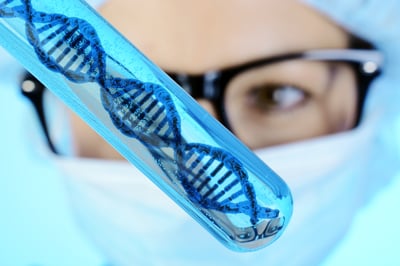
Relevance: Medium-High


Quality of Writing: Medium


Article : Insurance companies are more than curious about your genetic test results
Relevance: Medium-High


Quality of Writing: Medium


Most relevant for: People considering testing for an inherited gene mutation
An article on CBSNews.com addressed why insurance companies, particularly long-term insurance companies, might want to know which of their policy holders and potential policy holders have a gene that raises their risk for cancer. The article discusses genetic discrimination by insurance companies that provide long term care policies. Federal laws protect people with gene mutations from discrimination in health insurance. No such federal laws exist for life insurance, disability insurance or long term care. (3/13/18)
Read More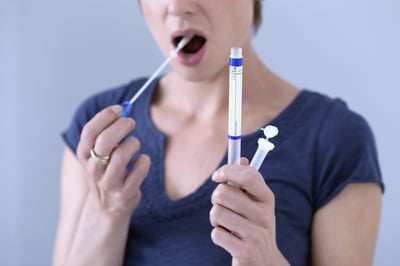
Relevance: High


Strength of Science: High


Research Timeline: Post Approval


Study : Should biannual MRIs replace annual mammograms in high-risk women?
Relevance: High


Strength of Science: High


Research Timeline: Post Approval


Most relevant for: Women at increased risk for breast cancer due to an inherited mutation
The risk of breast cancer is exceptionally high in women who have a personal or family history of breast cancer or who carry a mutation in BRCA or certain other genes. More frequent screening is one strategy for early detection of breast cancer for these women. Study results presented at the 2017 San Antonio Breast Cancer Symposium suggest that MRI screening every 6 months may be more effective than the currently recommended annual breast MRI and annual mammogram in detecting early stage breast cancers-which are more treatable-in high-risk women. (2/1/18)
Read More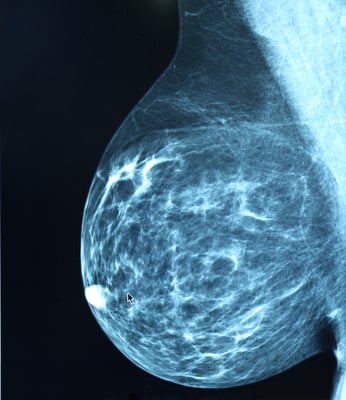
Relevance: Medium-High


Strength of Science: Medium-High


Research Timeline: Post Approval


Study : What is the risk of breast cancer recurrence after nipple-sparing mastectomy?
Relevance: Medium-High


Strength of Science: Medium-High


Research Timeline: Post Approval


Most relevant for: Breast cancer patients who are considering or have had a nipple sparing mastectomy
Nipple-sparing mastectomy (NSM) offers better cosmetic results for women who have immediate breast reconstruction (at the same time as their mastectomy). Over the past decade, NSM has gained popularity among surgeons and patients. Studies show that women who keep their own nipples have higher rates of satisfaction and psychological well-being after mastectomy and reconstruction compared to women who lose their nipples. However, little data exists on the long-term risk of recurrence following NSM. New research adds to a growing body of evidence suggesting that risk of recurrence is low after NSM in carefully selected patients with breast cancer. (1/25/18)
Read More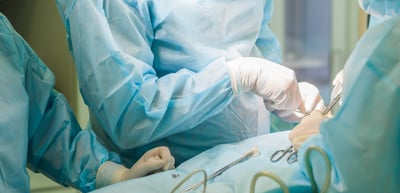
Relevance: Medium


Quality of Writing: High


Research Timeline: Human Research


Article : The buzz around MonaLisa Touch
Relevance: Medium


Quality of Writing: High


Research Timeline: Human Research


Most relevant for: Women experiencing vaginal symptoms from menopause
THIS INFORMATION HAS BEEN UPDATED. The FDA issued an alert in July, 2018 noting that laser or radiofrequency devices that have received FDA clearance are ONLY cleared for treating abnormal or pre-cancerous cervical or vaginal tissue and genital warts and have NOT been approved for vaginal rejuvenation. There are currently clinical trials enrolling women to study whether laser and radiofrequency devices can improve vaginal atrophy and other menopausal symptoms.
For many young breast cancer survivors and high-risk women, the side effects from early menopause after treatment and surgery can negatively impact their personal lives. This XRAYS looks at one of the many recent media articles on a laser procedure called MonaLisa Touch. The article, "Is Laser Treatment for Vaginal Atrophy Safe?" was published online in 2017 by FOX News and written by Dr. Manny Alvarez. XRAYS will discuss what this laser procedure actually is and how it may impact a young breast cancer patient’s life after treatment. (1/19/18)
Read More
Relevance: Medium-Low


Strength of Science: Medium-Low


Research Timeline: Human Research


Study : No new high-risk breast cancer genes here
Relevance: Medium-Low


Strength of Science: Medium-Low


Research Timeline: Human Research


Most relevant for: People with a family history of breast cancer but no known inherited mutation
While some of the genes that cause hereditary breast cancer are known (for example, inherited mutations in genes like BRCA, ATM and PALB2), others remain unidentified. Two studies found 72 DNA changes (also known as “variants” or “SNPs”) that affect breast cancer risk. These variants are different from mutations in genes that dramatically increase cancer risk. Most of these new variants are located outside of the portion of DNA that is used to make proteins. Further research is needed on these new variants before they can be used by doctors to help people understand and manage their risk for cancer. (1/12/18)
Read More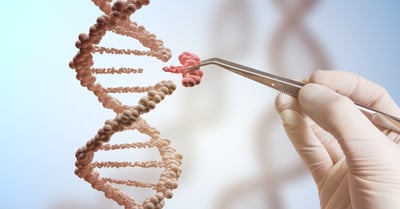
Relevance: Medium-High


Quality of Writing: High


Article : Dense breasts and mammograms: Jill Goodacre’s story
Relevance: Medium-High


Quality of Writing: High


Most relevant for: Women with dense breast tissue on mammograms
Korin Miller’s piece for SELF magazine focuses on why women with dense breasts may need more than a screening mammogram. Miller highlights the recent story in People magazine of Jill Goodacre, a former Victoria’s Secret model and the wife of recording artist and talk show host Harry Connick Jr. Goodacre told of her breast cancer diagnosis 5 years ago after having additional screening of her dense breast tissue following a normal mammogram. (12/8/17)
Read More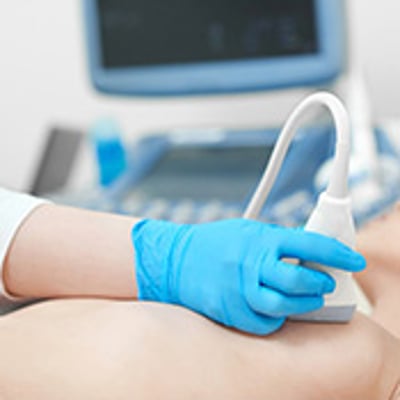
Relevance: Medium-High


Strength of Science: Medium-High


Research Timeline: Post Approval


Study : Genetic counseling by phone or face-to-face
Relevance: Medium-High


Strength of Science: Medium-High


Research Timeline: Post Approval


Most relevant for: People referred to a genetic counselor or those considering genetic testing
Results presented at the 2017 American Psychological Association’s annual meeting showed genetic counseling by telephone is as “safe and effective” in long-term psychological and social outcomes compared to traditional in-person counseling for women at risk for hereditary breast and ovarian cancer. This presentation is an update on research published in 2014. (11/29/17)
Read More